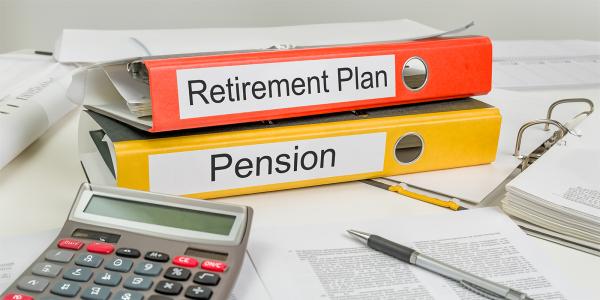PAYE on pensions
If you get money from an occupational pension, private pension or retirement annuity, the pension payer deducts tax from your pension under the Pay As You Earn (PAYE) system. We look at how PAYE applies to pensions and some problems you might encounter with your tax code. The information on this page does not apply to the state pension, which is paid gross (that is, without deduction of tax at source – no tax is taken off it before it is paid to you).

Content on this page:
Starting to receive a pension
When you start to receive a pension for the first time, HMRC are not able to work out your tax code until they have received some information from either you or your pension provider.
You may have a form P45 to hand to your pension provider if, for example, you have just stopped working and immediately afterwards start to take a pension.
But if you do not have a form P45 to hand, your pension provider should send details of your new pension direct to HMRC via the electronic PAYE system. As a pensioner, you will not see this yourself, as the pension company submits the information directly to HMRC.
Payslips
For pension income, you generally do not get a payslip (a notification of how much you are being paid and tax deductions) for each pension payment. However, you should get some form of notification if there is any change to the amount of pension payment, for example, if your tax code changes, or if the amount of your pension increases because of inflation.
PAYE at the end of the tax year
As long as you are receiving a pension at 5 April, the end of the tax year, your pension provider will give you an ‘end of year certificate’ – form P60 or its equivalent – by 31 May. This might be given to you electronically, rather than on paper. This shows the total amount paid in the tax year, the tax deducted and the final tax code in operation. You should check that the PAYE code shown on the form is correct.
There is more information on our page PAYE at the end of the tax year.
Emergency tax codes
There is information on emergency tax codes on our page Special PAYE codes.
You may find that you have an emergency tax code if you take money out of your pension under the flexible pensions rules. There is more information on our page How tax is collected on flexible pension payments.
PAYE coding notices
There is information for employees and pensioners about PAYE coding notices, including how to check them, on our page PAYE coding notices. You should just get a single coding notice for all of your sources of income that are taxed under PAYE, though you will have a separate code for each source.
Pensioners may tend to get coding notices more often than employees – for example, if you start to draw a new source of pension income to which PAYE is applied for the first time.
You might receive more than one pension from the same pension provider. If this is the case, you should check that you have a code number for each pension – they might have different PAYE scheme reference numbers, for instance. If you need clarification, contact HMRC.
Multiple pensions
When you start getting your pensions, you may have more than one occupational or personal pension. Each pension (other than the state pension) will need its own tax code. You should check each of them to make sure that they are correct.
You need to make sure that you are not getting too many or too few allowances by looking at all of your tax codes for a tax year together – these should all be shown on the same PAYE coding notice from HMRC. You should also be able to see them in your Personal Tax Account.
Depending on how you take money out of your pension, you may not necessarily pay the right tax at the right time, so keep an eye on how much you are paying. If you take money flexibly from your pensions, you might pay too much (or sometimes not enough) tax when you take the money out. There is more information on our page How tax is collected on flexible pension payments.
Employment benefits and expenses
Many adjustments caused by employment, such as taxable benefits, special work allowances or subscriptions, may need to be reduced in the final year of work. This is because if you retire part way through a tax year, you are unlikely to require a full year’s adjustment to your tax code.
In the second year after retirement, make sure that any adjustments that were due in earlier years from your prior employment are not being simply carried forward by HMRC, just because you had them the year before. For example, if your previous employer provided you with private medical insurance, you need to check that this benefit is not included in your coding notice for your pension.
Below is an example to help you work out what your tax should be from your tax code. There are more examples on the page PAYE coding notices.
More information
You can find more information on checking your PAYE coding notice on our page PAYE coding notices.
If you do not understand your PAYE coding notice or think it is wrong, you should contact HMRC.
For information on what happens when you start to receive the state pension see our page How tax is collected on the state pension.
You may be able to take money out flexibly from some kinds of pension, or the whole of your pension as a lump sum. There is guidance on how you are taxed on our page How tax is collected on flexible pension payments.



